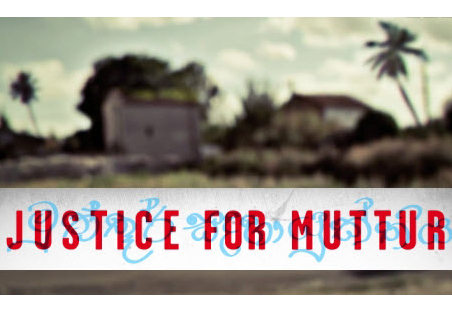The ICJ urged again the Government of Sri Lanka to identify and prosecute those responsible for the killing of 17 Action Contre la Faim (ACF) aid workers in Muttur in August 2006.
The Sri Lankan authorities must also fulfil a commitment made by the President of Sri Lanka to set up an independent task force within the criminal justice system to reinvigorate the investigation.
Over one year after the execution-style killing of the 17 employees of French humanitarian organization ACF, the ICJ said it was deeply concerned about the apparent lack of progress in the investigation.
“Repeatedly over the last year, we have raised concerns about significant flaws in the police investigation, an investigation that has lacked impartiality, transparency and effectiveness”, said the ICJ.
“The investigation needs to be reinvigorated and intensified if justice is to be done and seen to be done and if the endemic culture of impunity in Sri Lanka is to begin to be addressed”, concluded the ICJ
The ICJ raised these and other concerns at a meeting between an ICJ delegation, led by the ICJ Secretary-General, and the Sri Lankan Minister of Disaster Management and Human Rights (the Minister), Mahinda Samarasinghe, the Attorney General, C.R. de Silva, and other Government officials, on 5 September 2007 in Geneva, organised at the request of the Government.
The ICJ called on the Government to fulfil its commitments made in relation to the ACF case.
In a meeting with the ICJ’s Secretary-General in June 2007, the President of Sri Lanka pledged to set up an independent task force within the regular criminal justice system to vigorously renew investigations in the ACF case and also into the killing of five students in Trincomalee in January 2006. At the meeting on 5 September, the ICJ asked for an update on the setting up of this task force. The Minister and other government representatives present denied any recollection of the commitment.
On 28 June, the Sri Lankan Minister of Disaster Management and Human Rights stated that he would bring in a ballistics expert to help resolve a controversy over the calibre of one item found in the cranium of one of the victims. The calibre of the item is highly significant, as such information may help to identify the killers.
The ICJ reiterated in the meeting with the Minister on 5 September that the only way the question of the calibre of the item could be resolved, would be if he implemented his proposal of 28 June to ask the Australian Government to recommend a ballistics expert who could consult with those who carried out previous examinations. The ICJ publicly welcomed this proposal on 5 July 2007.
“A credible, independent examination by a ballistics expert of the relevant original ballistics material, of the photos taken during the post mortems and of the x-ray images, would authoritatively resolve the question of the calibre of the item and the ICJ would accept its conclusions”, said the ICJ.
The ICJ seeks a productive engagement with the Government of Sri Lanka, with the aim of helping to ensure that those responsible for such killings are brought to justice. The ICJ provided the Government with a draft of a second report on the ACF inquest (the “Addendum” report) 18 days before it was published, inviting any comments, which would be reflected in the final text. The ICJ is disappointed that the Government chose not to provide any comments before the report was published.
Background to concerns about ballistics evidence
The ICJ has observed the inquest, and monitored the investigation, relating to the killing of the 17 ACF aid workers. The ICJ issued two reports of its observer, Michael Birnbaum QC, in April 2007, with an “Addendum” released in June 2007.
The ICJ reports included serious concerns about the ballistics evidence, in particular that the police had not complied with orders of the court regarding transmission of ballistics evidence designed to guarantee their integrity, including that the sealed parcels of exhibits must be opened in the presence of an Australian expert. The second report also raises a significant discrepancy concerning the calibre of a bullet found in the cranium of one of the victims.
Dr. Malcolm Dodd, an independent, Australian forensic pathologist who was invited by the Government to observe a second post mortem carried out on the bodies in October 2006, concluded that one of eight projectiles removed from the bodies of the victims was of a 5.56mm calibre. In contrast, the Government Analyst concluded in a report prepared four months later, that all the eight projectiles he had been provided with were of 7.62mm calibre. The ICJ’s “Addendum” report raised these concerns and called for an investigation.
Recently, in July 2007, Dr. Dodd sent the Government a supplementary report in which he stated he has no ballistics expertise and that it was on the advice of the members of the Criminal Investigation Department (CID) that the projectile was recorded as being of 5.56mm calibre. He goes on to state that he now believes all projectiles removed from the bodies were of 7.62mm calibre. This report of Dr. Dodd was based on reviewing a report prepared by the Sri Lanka Government Analyst in May 2007 and colour photographs provided by the Government of Sri Lanka.
To date, no independent ballistics expert has reviewed the original ballistics material.
Sri Lanka-Justice Killers Aid Workers-Press releases-2007 (full text, PDF)





